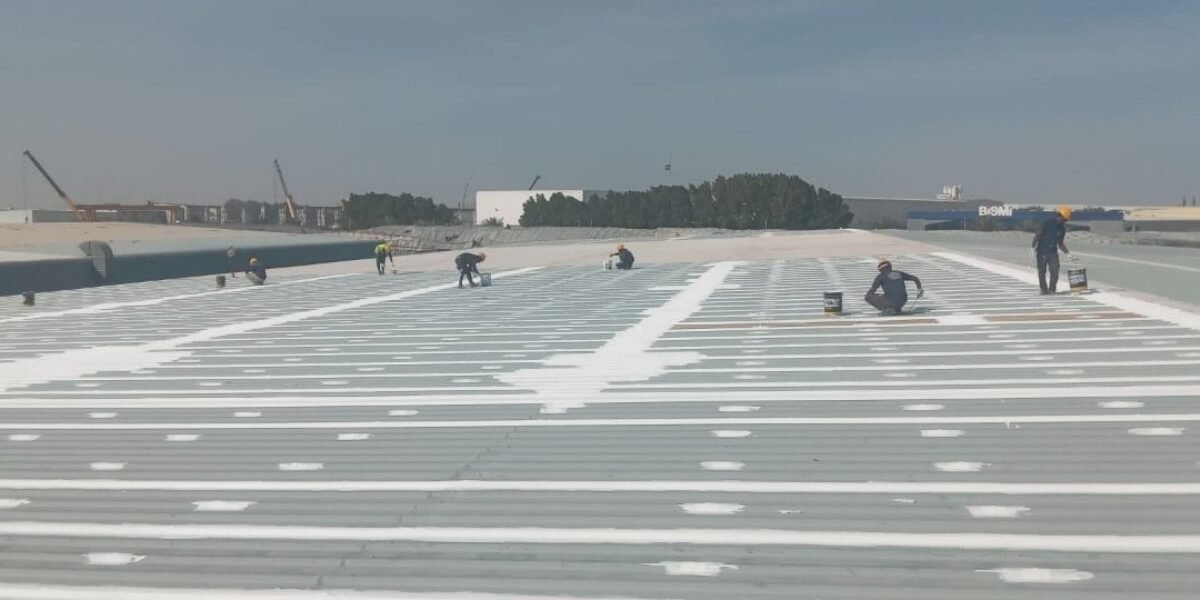In a city like Dubai, where skyscrapers touch the clouds and luxury villas dot the skyline, property maintenance isn’t just about aesthetics — it’s about durability and smart protection. One of the smartest (and most essential) decisions you can make as a property owner in the UAE is investing in reliable waterproofing.
Why? Because Dubai’s extreme weather is not as friendly to buildings as it is to beach lovers. From blistering summer heat to unexpected winter rains, every season puts your property’s waterproofing system to the test.
In this blog, we’ll take a closer look at how Dubai’s unique weather conditions impact waterproofing systems, why proactive maintenance is vital, and how you can protect your property from weather-related damage.
Why Waterproofing is Crucial for Dubai Properties
Dubai’s modern buildings, villas, and commercial spaces rely on high-quality construction, but without proper waterproofing, even the strongest concrete can fall victim to the natural elements.
Waterproofing protects critical areas like:
- Roofs and terraces
- Balconies and outdoor seating areas
- Basements and foundations
- Bathrooms, kitchens, and wet rooms
- Swimming pools and lift pits
Without it, you risk problems like:
- Cracked walls and ceilings
- Water seepage and mold growth
- Rusted reinforcements and structural damage
- Reduced property value
And here in Dubai, weather can fast-track all of these issues.
How Dubai’s Weather Challenges Your Waterproofing
1. Extreme Heat and UV Radiation
Dubai is no stranger to scorching summers, where temperatures often exceed 45°C (113°F). The sun here is not just hot — it’s relentless.
How heat impacts waterproofing:
- Continuous UV exposure dries out waterproofing membranes, making them brittle.
- Daily expansion and contraction of materials due to temperature swings stress the joints and seals.
- Over time, this leads to cracks, gaps, and eventual leaks — especially on rooftops and exposed terraces.
Dubai-Specific Solution:
Choose waterproofing membranes that are UV-resistant and designed for Middle Eastern climates. Reflective coatings and heat-resistant materials will help protect your property from sun-induced wear and tear.
2. Humidity and Condensation
Despite being located in the desert, Dubai’s proximity to the sea brings high humidity, especially during the summer and early autumn months.
How humidity impacts waterproofing:
- Trapped moisture can cause concrete structures to weaken.
- Dampness fosters mold, mildew, and bad odors — a common problem in poorly ventilated homes and basements.
- Moisture buildup leads to peeling paint, rust, and wood rot.
Dubai-Specific Solution:
Pair waterproofing systems with proper ventilation and dehumidifiers. Areas like basements, bathrooms, and underground parking must have both moisture barriers and airflow solutions to prevent long-term damage.
3. Seasonal Rains and Flash Flooding
Although rain is infrequent in Dubai, when it does rain — it pours. Short but heavy rainstorms, usually during winter months (November to March), can overwhelm a poorly waterproofed property in minutes.
How rain impacts waterproofing:
- Water collects quickly on flat roofs, terraces, and balconies.
- Inadequate drainage causes water to seep into walls, ceilings, and foundations.
- Older waterproofing systems can fail under the pressure of Dubai’s sudden cloudbursts.
Dubai-Specific Solution:
Ensure your building’s drainage systems are always clean and functioning before the rainy season begins. Combine this with a high-quality waterproofing membrane designed to handle short but intense downpours.
4. Dust Storms and Wind
Dubai’s weather isn’t just about sun and rain — sandstorms and strong winds are part of life too.
How sandstorms impact waterproofing:
- Fine dust particles settle into cracks and crevices, sometimes absorbing moisture and accelerating degradation.
- Wind-driven sand can erode surfaces and scratch coatings, weakening their waterproof integrity over time.
Dubai-Specific Solution:
Regular cleaning and surface inspections are key. Opt for abrasion-resistant waterproofing materials for exposed areas to reduce wear from dust and wind.
The Importance of Regular Waterproofing Maintenance in Dubai
In Dubai, where properties face both manmade and natural stressors, waterproofing isn’t a one-time fix — it’s an ongoing commitment.
Why it matters:
- Prevents Expensive Repairs: Water damage can silently spread before you notice visible signs.
- Extends Structural Lifespan: Consistent maintenance protects your foundation and walls from long-term deterioration.
- Preserves Property Value: Whether you own an apartment in Business Bay or a villa in Jumeirah, a well-maintained waterproofing system makes your property more valuable and attractive to buyers or tenants.
Pro Tips for Waterproofing Success in Dubai
- Seasonal Inspections:
Check your waterproofing systems at least twice a year — ideally before summer and before winter. - Choose Dubai-Proven Materials:
Not all waterproofing products are created equal. Use those designed to handle extreme heat, humidity, and short-term flooding, commonly faced in Dubai. - Act Fast on Small Issues:
Small cracks today become major leaks tomorrow. Quick repair is much cheaper than restoration. - Professional Application Matters:
Always hire an experienced Dubai-based waterproofing contractor. They understand local weather patterns and building materials better than anyone. - Don’t Ignore Drainage:
Good waterproofing starts with effective water flow. Keep roof drains, balcony outlets, and gutters clear.
Final Thoughts
Dubai’s beautiful skyline, luxurious villas, and world-class infrastructure are built to last, but the city’s weather — extreme heat, occasional rains, humidity, and sandstorms — constantly puts pressure on buildings, especially on their waterproofing systems.
Whether you’re a homeowner, property manager, or business owner, maintaining a strong and weather-resistant waterproofing system is non-negotiable if you want to protect your investment and avoid costly repairs.
The key to long-lasting protection is simple:
Right materials, professional installation, and routine maintenance.

